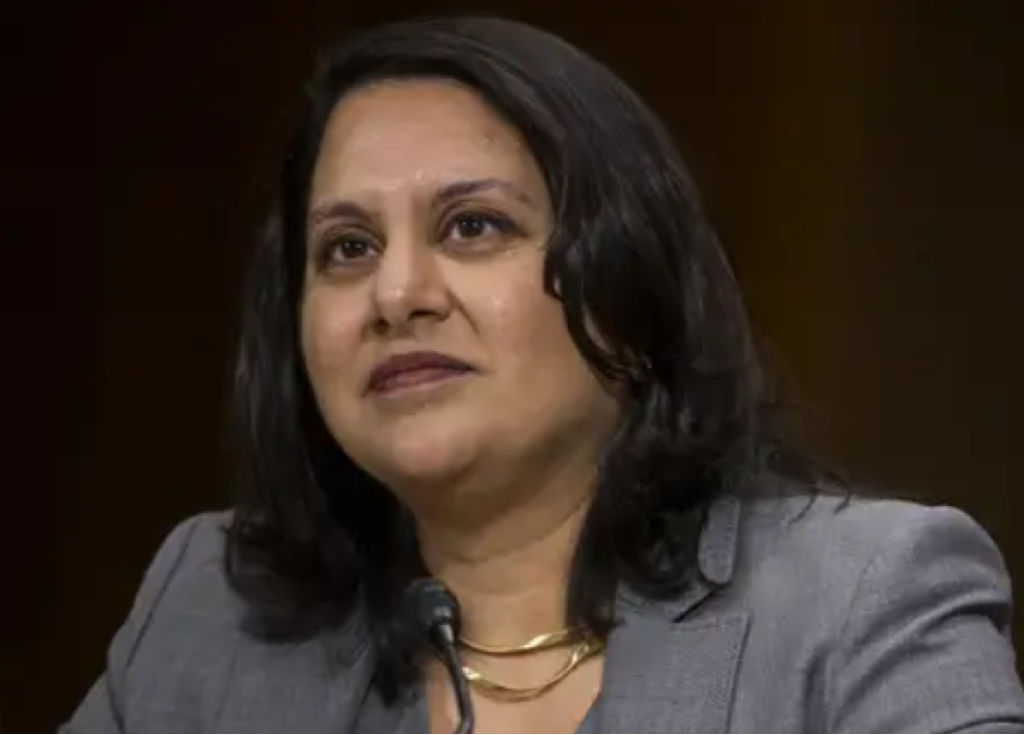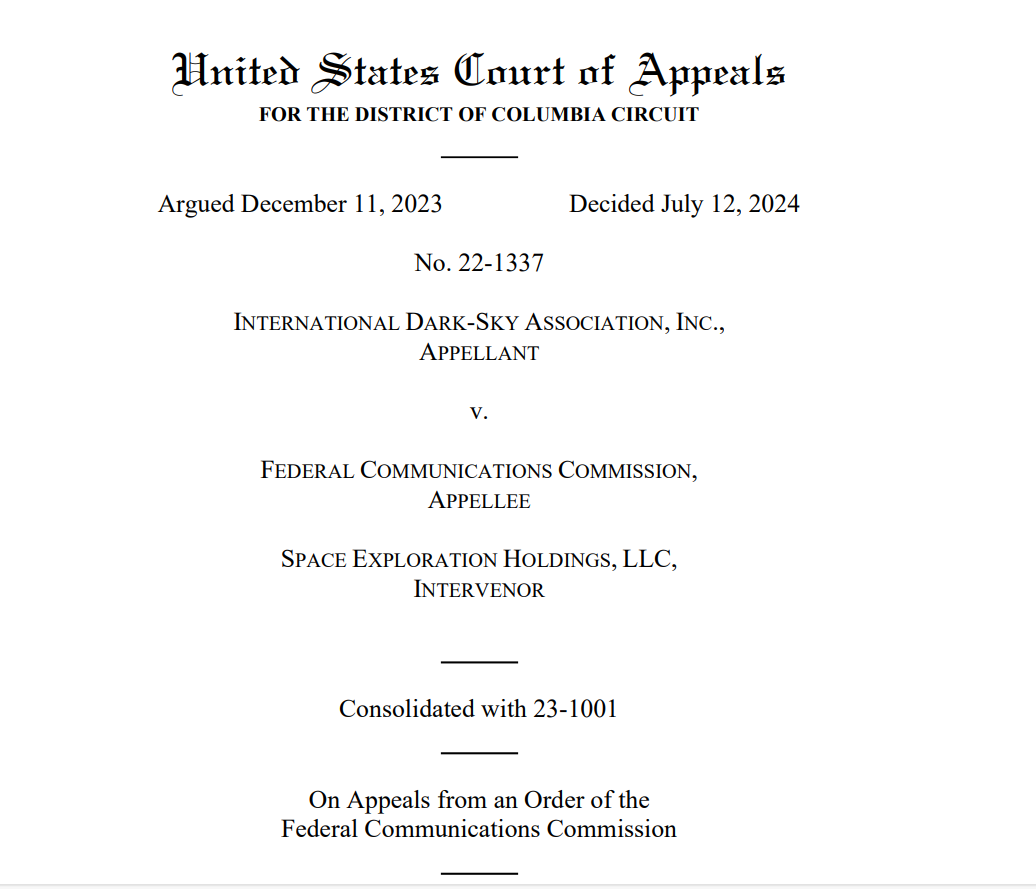Court Upholds FCC Approval of Starlink’s LEO Launch License
'Because the FCC’s order was lawful and reasonably explained, we affirm," said Circuit Judge Neomi Rao.
Ted Hearn

WASHINGTON, July 14, 2024 – A federal court on Friday upheld the Federal Communications Commission’s 2022 decision to allow SpaceX’s Starlink to deploy 7,500 next-generation (Gen2) satellites into low-earth orbit to provide Internet access.

Decision of D.C. Circuit Court in Dark-Sky v. FCC
A panel of the U.S. Court of Appeals for the D.C. Circuit said the FCC’s licensing of Starlink reasonably addressed signal interference issues raised by satellite TV operator Dish Network and environmental impact concerns raised by International Dark-Sky, whose members include astronomers fighting nighttime light pollution caused by satellite glare.
“Because the FCC’s order was lawful and reasonably explained, we affirm,” the three-judge panel said in a unanimous opinion by Circuit Judge Neomi Rao.
Reacting to the court's ruling, Republican FCC Commissioner Brendan Carr said on his X feed, "Affirming an FCC decision to approve a SpaceX satellite constellation, the D.C. Circuit has rejected claims by the International Dark-Sky Association that sought to overturn the FCC decision on light pollution grounds. Good news for satellite services."
Dish, which operates a satellite constellation to provide TV service to 6.3 million subscribers, opposed Starlink’s license, predicting unacceptable interference and claiming the FCC did not meaningful evaluate Dish’s data that conflicted with SpaceX’s data certified by the International Telecommunications Union.
The court upheld the FCC's reliance on the ITU-centered “self-certification” process established in 2016 to ensure Starlink would not operate at power levels harmful to Dish satellites.
The FCC did not evaluate Dish’s data showing risk of interference, another action the court supported.
"Dish’s proffered evidence falls well short of a smoking gun that would require the FCC to disregard SpaceX’s self-certification,” the court said. "Relying on its self-certification licensing framework, the FCC reasonably explained why it declined to consider Dish’s alternative analysis."
Dish also opposed the FCC’s decision to conditionally approve the launch of 7,500 Starlink satellites while the ITU review was pending. The FCC said the decision served the public interest by promotion Interne access competition and that Starlink would eventually need to adjust its power levels if the ITU found lack of compliance.
“The FCC’s decision to grant SpaceX’s license before the ITU made its compliance determination was reasonable and consistent with previous decisions of this court,” the court said.
International Dark-Sky said the FCC needed to conduct an environmental study pursuant to the National Environmental Policy Act before approving Starlink’s license.
In her opinion, Rao noted that FCC policy was that agency actions regarding regulated entities normally “have no significant effect on the quality of the human environment and are categorically excluded from environmental processing.” As a result, the court affirmed the FCC’s decision that an environmental review was unnecessary in connection with the Starlink license application.
The court said the FCC found that Starlink was changing software and hardware to reduce brightness and that Gen2 Starlink satellites would “orbit lower than previous satellites, which reduces reflectivity at night.”
According to one estimate, Starlink has 6,000 satellites deployed, "with over 5,200 of them operational and serving nearly 2.7 million users across 75 countries."









Member discussion